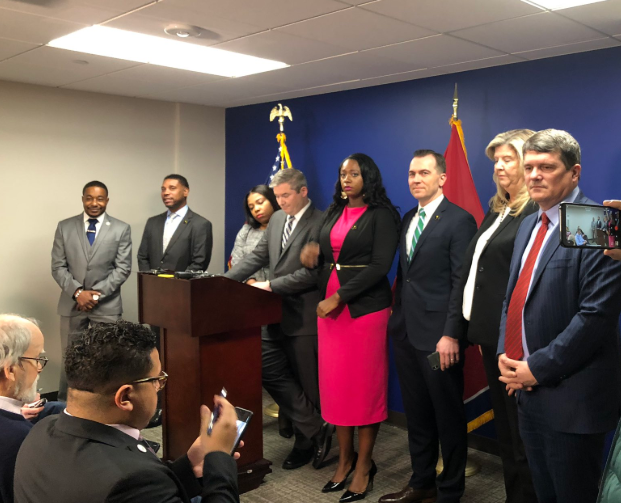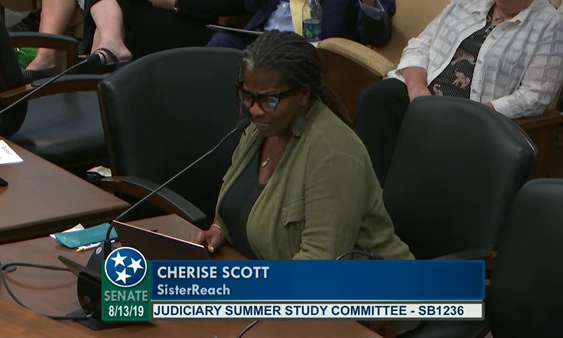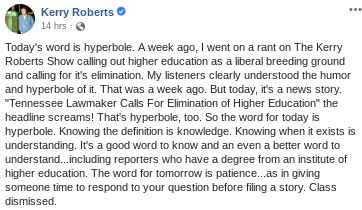The Center for Reproductive Rights has filed legal action against the state of Tennessee regarding abortion rights and the near-total ban passed by the state.
The case, Blackmon v. State of Tennessee, was filed on behalf of three women, Nicole Blackmon, Allyson Phillips, and Kaitlyn Dulong, who were “denied necessary and potentially life-saving medical care.” The suit was one of three complaints filed by the Center for Reproductive Rights on behalf of patients in Idaho, Tennessee, and Oklahoma, who were” denied abortion care despite grave pregnancy complications.’
“Blackmon v. State of Tennessee challenges the limited scope of the ‘emergent medical condition’ exception to Tennessee’s total abortion ban,” said the organization. They said that Tennessee’s abortion ban endangers the lives of pregnant people, and that the medical condition exception “threatens doctors with arbitrary enforcement.”
Plaintiffs also include two obstetricians/gynecologists, Dr. Heather Maune of Nashville, and Dr. Laura Anderson of Franklin. The suit states that the medical condition exception has “put patients’ lives and doctors’ liberty and livelihoods at grave risk.”
According to Tennessee Administrative Code, chapter 1200-12-01-.14, an emergency medical condition refers to a “medical condition manifesting itself by acute symptoms of sufficient severity, including severe pain, such that it could put the patient’s health in serious jeopardy, cause serious impairment to bodily function, or cause serious dysfunction of any body organ, system, or part without immediate medical attention.”
On August 25, 2022, a Tennessee law went into effect that made providing abortions a felony. The Human Life Protection Act “was passed in 2019 just in case the U.S. Supreme Court ever overturned the landmark Roe v. Wade.” The law only allows an abortion in Tennessee if giving birth would kill the pregnant woman or would prevent “serious risk of substantial and irreversible impairment of major bodily function.”
“Since then, pregnant people in Tennessee have suffered needless physical and emotional pain and harm, including loss of their fertility,” the lawsuit claims.
The lawsuit says the following on behalf of the three women:
- When Nicole Blackmon found out she was pregnant, she “stopped taking medication needed to treat the symptoms of her various medical conditions to avoid harming her pregnancy.” She later found out that her baby had a “lethal fetal diagnosis,” and was unable to leave Tennessee to get an abortion. Blackmon continued her pregnancy, and gave birth to a stillborn baby during her seventh month of pregnancy.
- Allie Phillips received the news that the second child she was expecting, Miley Rose, had developed “multiple fetal diagnoses.” Phillips could not get an abortion, and found out that continuing pregnancy “would strain [her] own precarious health.” Phillips raised money through GoFundMe to go to New York for care, but “had to drive her loss far from her own home without the support of her family and friends back in Tennessee.”
- After undergoing fertility treatments and becoming pregnant with her first child, Katy Dulong was diagnosed with cervical insufficiency. When she was told that she would “inevitably lose the pregnancy,” Dulong was “not given the medication that would have allowed her body to expel the pregnancy promptly without further risk to her own health.” Ten days later, the fetus’ body was in Dulong’s vaginal canal. The suit claims that she could have died from the “lengthy delay in receiving the care that she would have promptly received but for Tennessee’s abortion ban.”
“Abortion is necessary healthcare that is being denied under Tennessee’s abortion ban,” the suit says. “Tennessee’s abortion ban prevents pregnant people and those who may become pregnant from receiving the nationally recognized standard of care they need.”




 Tennessee Advocates for Planned Parenthood
Tennessee Advocates for Planned Parenthood 

